Scaling Farmer-Centered Solutions in Africa from the Soil Up
March 14th, Accelerating Nature-based Solutions Conference - In a call to address the pressing issue of soil degradation and its detrimental effects on food systems and livelihoods, a recent event co-hosted by the Coalition of Action 4 Soil Health (CA4SH) and CIFOR-ICRAF underscored the urgency for multi-stakeholder action to promote healthy soil ecosystems across Africa. The gathering, which brought together diverse stakeholders from farming communities, science, policy, development, conservation, and the private sector, emphasized the critical role of soil in sustainable and regenerative food systems.
Central to the discussions were the challenges of incentivizing smallholder farmers to prioritize soil health and integrating Nature-based Solutions (NbS), such as the use of cattle manure, intercropping, and crop rotations into their farming systems. With over one-third of the Earth’s surface degraded and more than 3.2 billion people adversely affected by degradation, there is growing consensus that continuing business as usual is no longer viable.
The event showcased novel approaches to sustainable agriculture, on-the-ground advancements in accurate monitoring of soil health, and opportunities to scale soil health practices across the continent. One notable presentation by Sebastian Scott from Grassroot Trust underscored the potential of nature-based solutions, such as the proper use of locally available soil amendments like animal manure and intercropping systems, to improve soil health and crop production. It was highlighted that promoting these solutions could significantly reduce reliance on chemical fertilizers, which not only incur high costs but also negative environmental impacts.
Additionally, representatives from organizations such as the Global Shea Alliance, Solidaridad, SNV Zambia/Zimbabwe, and CIFOR-ICRAF shared insights into their efforts to address soil health challenges and scale healthy soil practices on the ground. These initiatives ranged from providing markets, agronomic advisory services, and income diversification to farmers to implementing integrated systems that promote climate-smart agriculture practices and behavior change among communities.
Case Studies from Speakers
Marie Veyrier, Global Shea Alliance
In Shea-producing areas, the Global Shea Alliance is establishing markets that guarantee fair prices. This initiative has encouraged farmers to actively promote the natural regrowth of Shea trees, as they recognize the potential for more sustainable income from harvesting seeds rather than relying on charcoal production. Additionally, the organization provides agronomic advisory services to support the integration of Shea trees alongside other crops.
Nonsikelelo Nkomo, Solidaridad
Solidaridad offers a range of services to farmers, including soil testing and agronomic advisory services, as well as incentives through their Z’Wardy program via the KVUNO social enterprise platform. Farmers who consistently adopt smart agricultural practices are rewarded with points that accumulate over time. These points can be redeemed in the form of products like bicycles and gumboots, as well as services such as soil testing, land preparation, and maize/soybean threshing.
John Masinden, SNV Zambia/Zimbabwe
SVN collaborates with stakeholders, including the Ministry of Agriculture, to develop models aimed at community development. One such approach involves establishing demonstration plots within communities. These plots serve to showcase the effectiveness of climate-smart agriculture (CSA) practices compared to conventional methods, allowing farmers to observe their benefits over time. Additionally, SNV designs integrated systems or circular models that involve using animal manure for biogas generation, with the resulting bio-slurry serving as a soil ameliorate and the increased biomass used as livestock feed. Furthermore, SNV implements initiatives focusing on behavior change, capacity building, and fostering linkages with the private sector.
Nicholas Hogarth, CIFOR-ICRAF
It is important to quantify all sources of income within smallholder farming systems, including forests which provide ecosystem services as well as essential natural resources for nutrition, medicine, and the overall well-being of communities. Forests also provide income diversification to reduce shocks and other climate impacts. These income sources, often referred to as “hidden harvests” must not be overlooked, as properly accounting for them can significantly contribute to forest conservation efforts. For instance, CIFOR-ICRAF’s Z4ABC project aims to incentivize forest protection through the development and provision of non-timber products (NTFPs) and eco-tourism. By offering alternative livelihood options, such projects aim to reduce the pressures of agricultural extensification and charcoal production, thereby helping to safeguard forests from clearing.
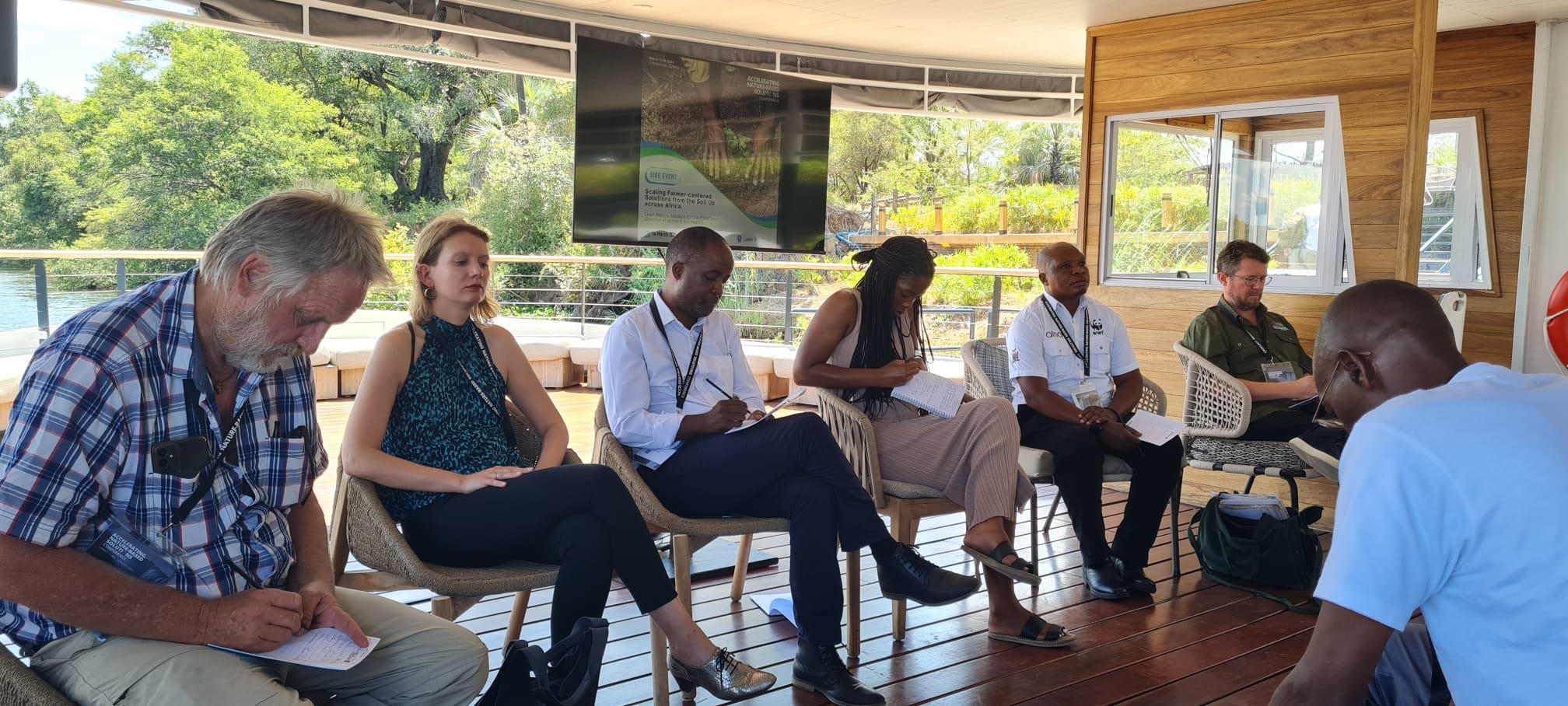
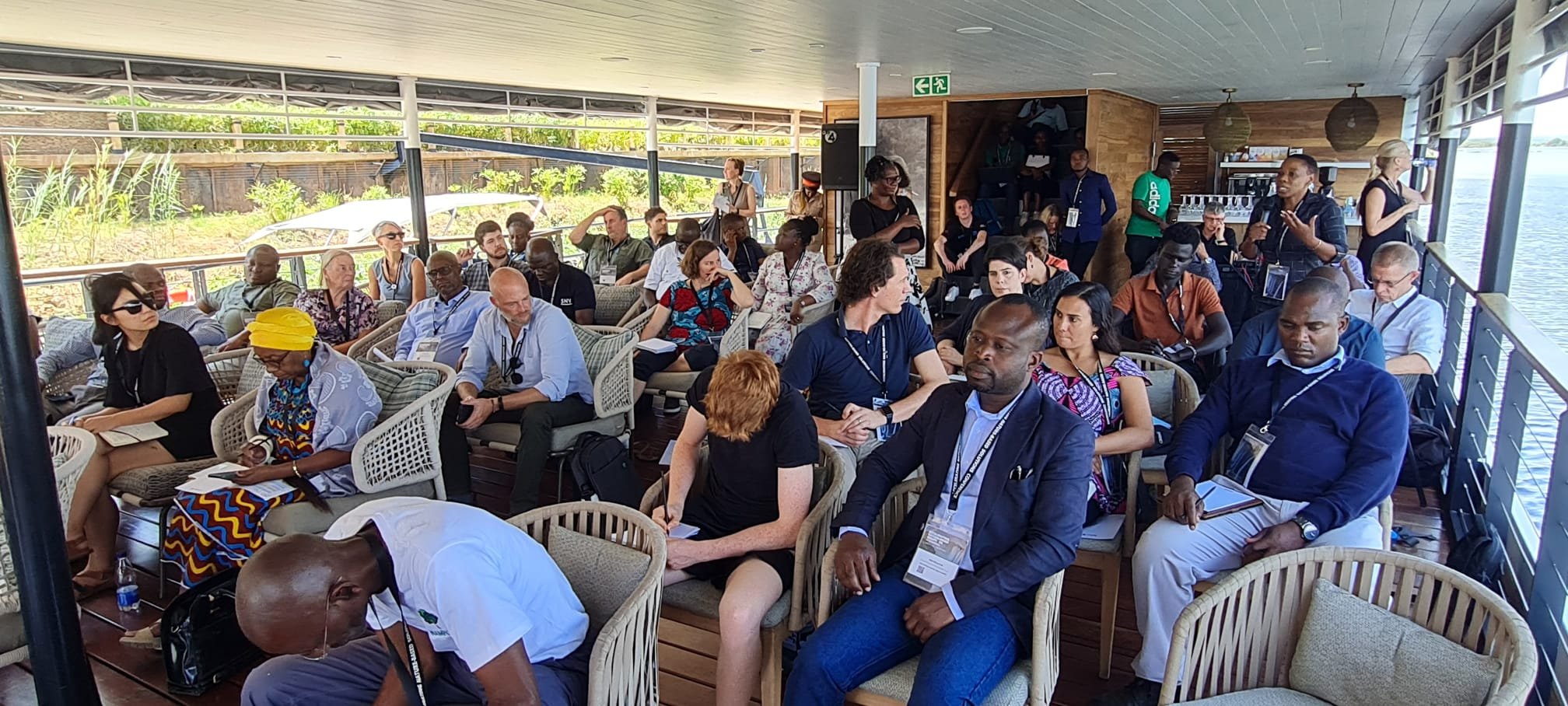
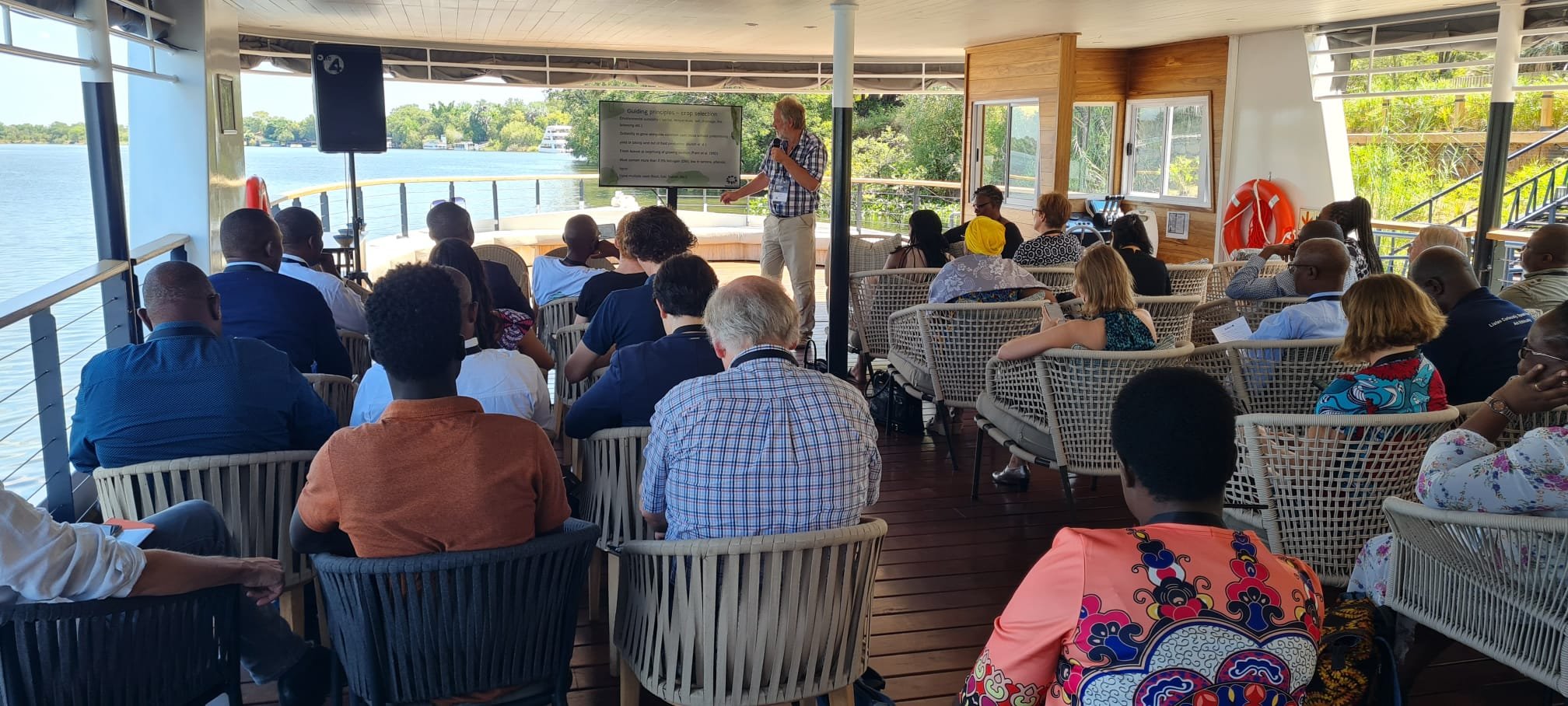
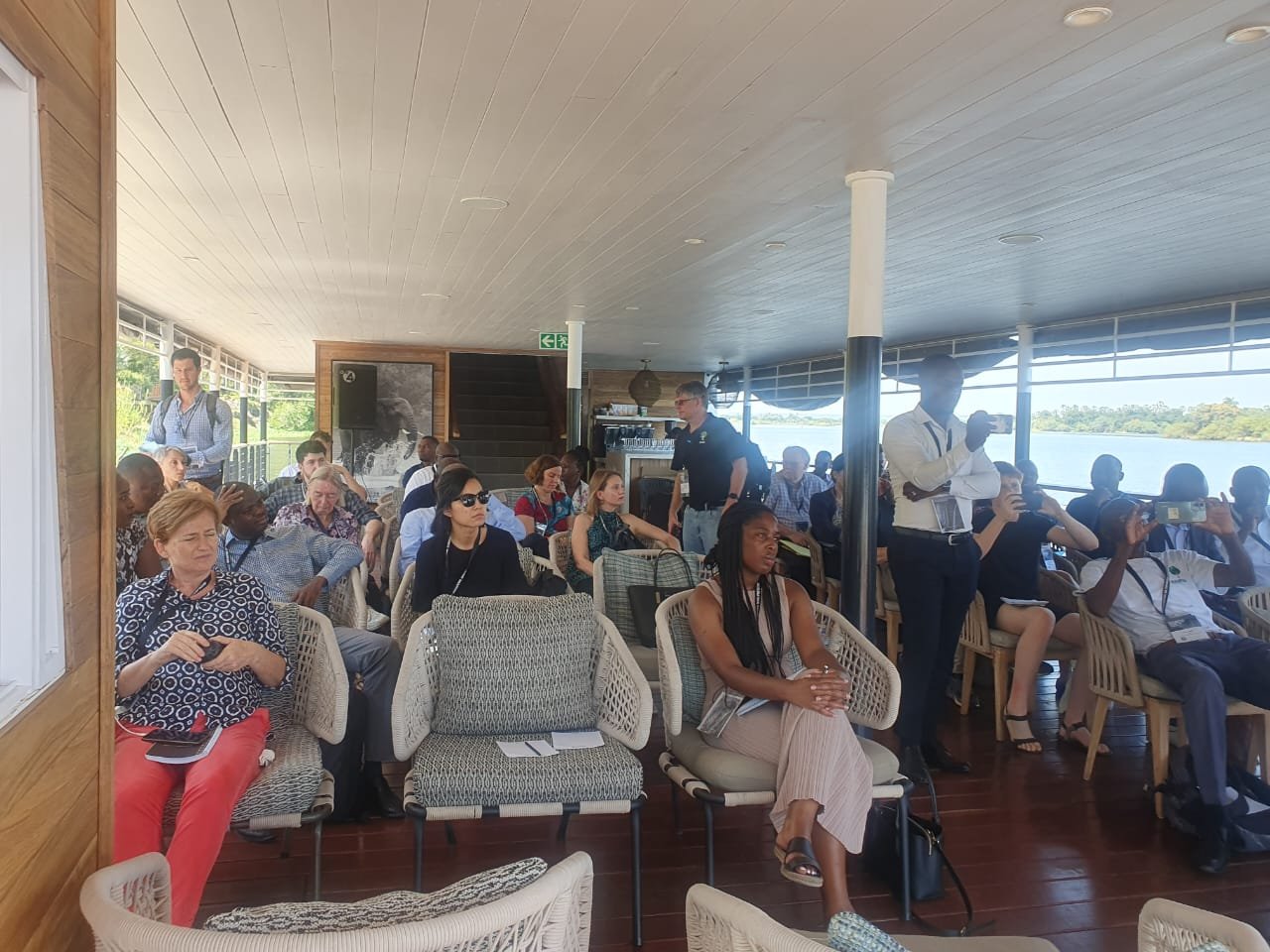
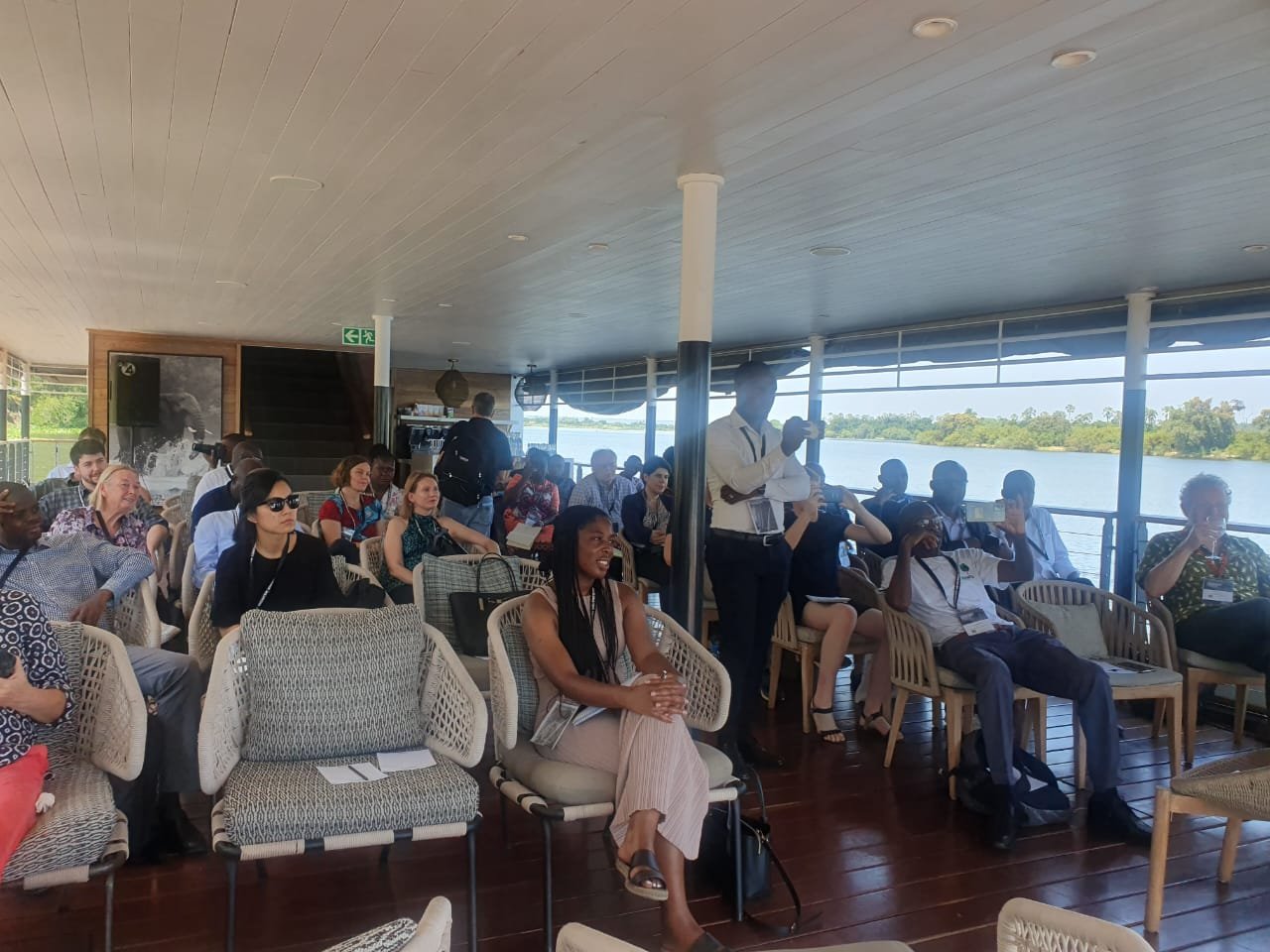
The event culminated in a call to action by Nalucha Nganga-Ziba, Country Director of WWF Zambia to include policy-makers, indigenous knowledge and strategic partnerships to drive impactful change. It was emphasized that soil health is often overlooked but is the cornerstone of successful restoration efforts and sustainable agricultural practices.
Participants identified actionable steps going forward including collaborations with local leaders, leveling the playing field for producers using nature-based solutions, and incentivizing adoption of these solutions over time. Moreover, strategies to overcome barriers to adoption and scale-up NbS practices were emphasized, with a call for long-term incentives and financial support from both the public and private sectors.
As the African Union gears up to host the Africa Fertilizer and Soil Health Summit on 7-9 May 2024, and with an action plan in place to improve soil health, the momentum generated by this event underscores a growing recognition of the need to prioritize soil health on the continent’s development agenda. With concerted efforts and multi-stakeholder collaboration, healthy soil practices can be scaled in Africa through implementation, monitoring, financial investments, and policy support.

